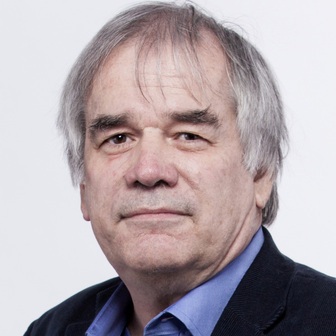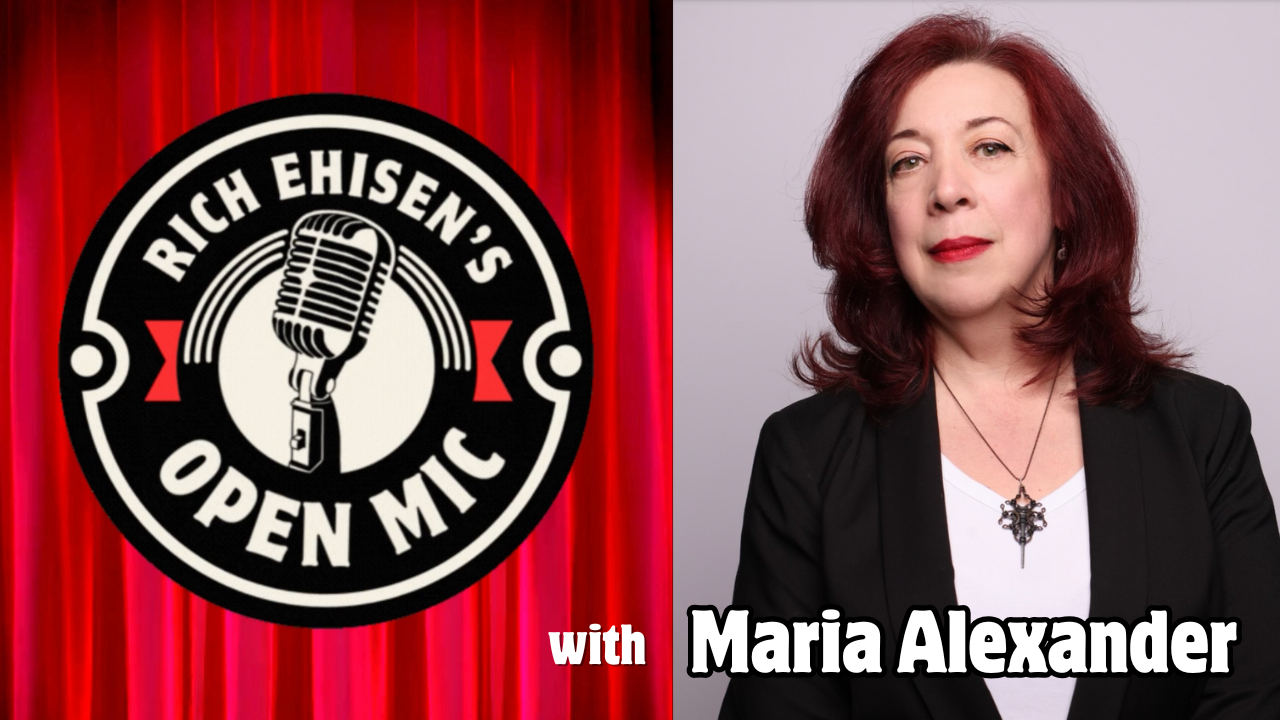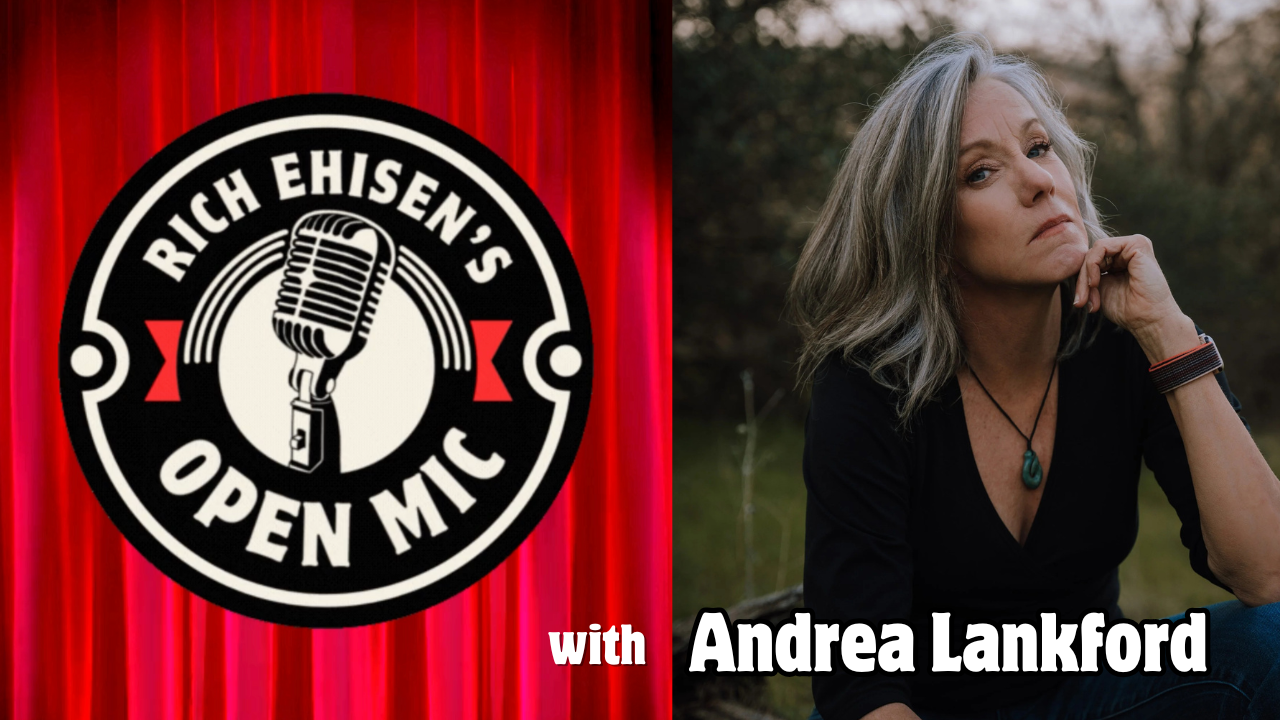We don’t do a lot of second takes here at the Open Mic, but then some folks are always worth hearing from again. Such is the case with R.G. “Dick” Belsky, who dropped by recently to talk about his latest crime thriller, “Below the Fold,” the pros and cons of writers’ conferences and his evolution as a writer.
Open Mic: Tell me a bit about the new book, “Below the Fold,” which came out on May 7th.
Belsky: I’ll start with the title. “Below the Fold” is an old newspaper term which refers to a story that really isn’t important enough to make it to the top of the front page. Even though my character, Clare Carlson, is an ex-newspaper reporter who winds up in TV, she’s still a print reporter at heart. The premise of this book is that while the media focuses on the high-profile sensational crime stories – the blonde, white female syndrome – there’s a lot of other crimes and murders that never get covered. But everyone has a story if you really look hard enough to find it. In this case, it’s the murder of a homeless women on the streets of New York City. She’s nobody and nobody really cares about her, but when Clare Carlson decides to do an investigation into who she was and how she got on the street, it turns out she has connections to a lot of very important people. That leads to it being a very high profile, sensational story. I’ve been involved in this kind of thing in my real life as a journalist, and I thought as a book of fiction that would be an interesting angle to peruse.
Open Mic: This is your 13th book, and the third series you’ve done. How have you evolved as a writer since you first started out?
Belsky: I like to think that I’ve become more interesting, and I like to think that I’ve become better. When I go back and read the first book I ever did, “One for the Money” in 1985, I’m sort of startled by how simple and basic it is. That’s not always a bad thing, but it’s very short and very simple. In my more recent books, the plots are much more complex. There are many more twists and red herrings, stuff like that. And I think my characters have more layers to them, too. I don’t know if I was able to bring the depth to my earlier character that I do now.
A lot of that comes from experience and from reading of a lot of great mysteries, but a lot also comes from self-confidence. When you’re starting out, you’re thinking, ‘I don’t know if this is any good.’ As you get more confidence in yourself and in your abilities, you take more chances and you push more. With both the character and the story, I frequently get to a point now where I have to make a decision – should I play it safe or should I push it up a notch, even though some people say that’s unbelievable or too much or whatever? I generally make the decision to push for it. Every once in a while I’ll have to pull back, but I’d rather do that than play it safe.
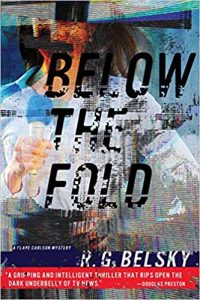 Open Mic: You’ve uttered what I consider the best writing advice a person can receive, which is to focus on writing rather than on talking about writing. You attend some of the big writers’ conferences out there – do you think most of the aspiring writers you see there actually get that message?
Open Mic: You’ve uttered what I consider the best writing advice a person can receive, which is to focus on writing rather than on talking about writing. You attend some of the big writers’ conferences out there – do you think most of the aspiring writers you see there actually get that message?
Belsky: I think writers conferences are actually really good because by going to one you’ve taken that first step to be a writer. The key is you have to leave the conference and go write your own book. I can’t tell you how many people I know that I have told to just sit down and try and write a book. You don’t know if you can until you try, but 99 percent of them just don’t do it. They talk about it, but then I’ll talk to them six months later and ask if they ever actually sat down and tried to write it. No. So that’s really the key. In the end, you’ve actually got to write. Whether it’s a good book or a bad book, you’ve got to write it.
My absolute favorite story about this comes from the great Raymond Chandler. He said that if you want to be a writer, you need to set aside a certain amount of time every day – an hour, two hours, three hours, whatever – and you don’t do anything with that time other than write. You don’t have to write, but you can’t do anything else. You can’t look at the TV, you can’t read a book, you can’t write a letter. You have to sit at your desk and either write or do nothing, and in the end you’ll write because you get so bored that you’ll write something.
Open Mic: Do you ever use a freelance editor?
Belsky: I haven’t. I am very, very picky about whose advice I listen to. I go to conferences and people say, “I have a group of beta readers and they tell me what they think and I make changes based on that.” I honestly don’t get that. I’ve written what I think is a good book, so I have to be pretty certain that somebody telling me I should make changes is smarter than me, and I really don’t know that. The people at Oceanview are terrific editors, and so is my agent. I trust when they tell me something. I don’t want to get advice from people unless I know that their advice is the right thing, so I would be very, very careful in hiring a freelance editor. I’d make sure what their qualifications were, and also that they understood me and my writing, and that’s something that you don’t really know until you have the exchange.
Now the copyediting part is really crucial. That’s the most annoying part of editing to me. No matter how many times you go through the book you’ll find the misspelling of a name or something else wrong. I have this tendency to change names. Suddenly a name will change at some point during the book, so it’s really crucial to have a copy editor read it. It’s very hard for an author to catch their own mistakes because they’re too familiar with the story.
Open Mic: The marketing aspect of the business is falling more and more onto the authors these days. How do you approach this task?
Belsky: Almost every author today should assume they need to be responsible for their own promotion. There are two areas that I pursue, and I’ll tell you it’s almost a full-time job doing it. One is just getting out to meet as many readers in person as I can. That’s why like I go to all the conferences. I go to Thriller Fest, Malice Domestic, Killer Nashville and Bouchercon, etc. And you need to book as many appearances as you can get in bookstores or any place where you can meet people and they can see you. The idea is selling one reader at a time and getting your name out there. The other part of it is social media – Facebook and Twitter and Instagram and things like that. You basically can do whatever you want with it, and it’s pretty much free. Both of these things are really crucial these days.
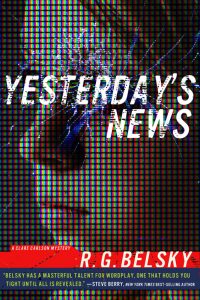 Open Mic: How much do you read the reviews of your books?
Open Mic: How much do you read the reviews of your books?
Belsky: Obsessively. I know the cool answer is to say I don’t care, but believe me I care. You can go on Amazon and you can read twenty people who give you five stars and tell you what a great book it is, and the one you remember is the one that goes “I didn’t like this, it’s boring” or “this person doesn’t know anything about journalism.” The one thing I’ve never done is get into a debate with someone over their comments. Because then you just go down this rabbit hole, so you’ve just got to suck it up. And every once in a while, you’ll read one where you’re just like, ‘oh my god they get it, they totally get it.”
Open Mic: Who do you read these days? Is there someone who inspires you?
Belsky: I’ve read every Michael Connelly book from the last 25 years. He was a crime writer for the Los Angeles Times, so even though he writes about a cop he comes from this journalism background. I actually met him a few times and had conversations with him about that, and he still on some level thinks of himself as a journalist. He more than anybody I can think of over a long period of time has been the most consistently excellent. Raymond Chandler and Robert Parker, too. And I really like the Ace Atkins version of the Spenser series. I used to read Sue Grafton because of Kinsey Milhone. I love writers who write a great female character. I read all those. And I really like Michael Koryta’s stuff.
Open Mic: I believe you have the honor of being the only person I have asked this next question of twice. If I could put you together with any one of the following three people for dinner and a conversation, who would you choose and why? Your choices are: Jimi Hendrix, Frank Sinatra, or John Wayne.
Belsky: I’m going to eliminate Jimmy Hendrix right off because I never really got into him that much. I guess Sinatra, not so much for the music but for the lifestyle with the Rat Pack and everything. Number one, he would probably take you to a good restaurant and you would get good service. I’m a huge fan of John F Kennedy and the Kennedys, so then you would get into that whole scene, which he was part of. If I was with Frank Sinatra, I could also hang out with Dean Martin and Peter Lawford and Sammy Davis Jr. and Joey Bishop, so I think he would certainly be the most fun. Maybe he would sing a song or something and if anybody gave you any trouble he would probably get them beat up. John Wayne would be a little duller, so I’m definitely for hanging out with the chairman of the board, Frank Sinatra.

